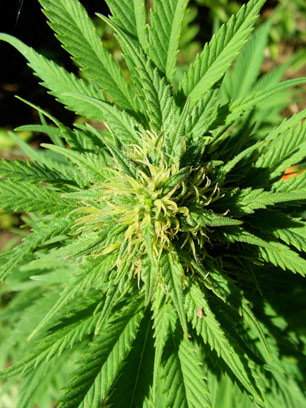Did you know that Truthout is a nonprofit and independently funded by readers like you? If you value what we do, please support our work with a donation.
Chicago joined several other localities this week when the City Council voted to decriminalize marijuana. The new ordinance, which would allow people caught with less than half an ounce of the drug to face fines instead of being arrested, hopes to counter the devastating effects that the criminalization of low-level drugs has had on communities of color in the city.
“The Chicago City Council’s vote today to allow police to issue a ticket rather than arrest someone for marijuana possession is very much a step in the right direction. The near unanimous support for the measure as well as specific comments by [aldermen] demonstrated significant concern with the waste of police resources, harmful consequences of an arrest and the fact that over three-fourths of all marijuana arrests are of African Americans,” said Ethan Nadelmann, executive director of the Drug Policy Alliance, in a statement. “If the measure is implemented in good faith, it should reduce the negative consequences of the state’s marijuana prohibition laws in Chicago.”
Chicago’s move comes on the heels of a growing push to decriminalize small amounts of marijuana possession. New York’s governor Andrew Cuomo proposed an ordinance earlier this month to decriminalize up to 25 grams of marijuana. The measure was blocked by state Republicans, but garnered the support of the mayor, the police commissioner and a bevy of the city’s district attorneys
California, Connecticut and Rhode Island have all voted for decriminalization along similar lines in the past two years.
The Chicago ordinance passed by a vote of 42 to 3. On the ground, there are still possibilities for individuals to be arrested for possessing marijuana, if they are: carrying more than the allowed amount; smoking in public, on school grounds or in parks; or are underage, they are still liable for arrest. Otherwise, the fee penalty is between $250 and $500.
Nadelmann says the law will have to be closely watched to make sure it achieves its goals.
“The devil is very much in the details as to whether the new ordinance will ultimately do more good than harm. The fine of $250, and possibly more, is excessive – and may result in undue hardship for young and poor people without the resources to pay,” he said. “Police will retain the legal authority to arrest rather than ticket people for marijuana possession, thereby allowing for the perpetuation of racial bias in enforcing the state’s marijuana laws.”
The push for the law from Chicago Mayor Rahm Emanuel and Police Superintendent Garry McCarthy comes as violence in the city continues to skyrocket. Shootings so far this year are up by 38 percent, and 300 public school children have been shot since the start of the school year.
In response to the spate of violence, Emanuel and McCarthy have called for a new policing program that includes gang audits and increased surveillance on individuals, as well as bringing more police into high-crime areas.
They have argued that the measure does not amount to decriminalization. “It’s not decriminalization; it’s dealing with it in a different way and a different penalty,” said Emanuel.
Nadelmann urges similar caution: “More people may be stopped and charged with marijuana possession offenses than before. And the mayor and police chief’s insistence that their proposal ‘is not decriminalization’ is less than reassuring.”
Like many major cities around the country, Chicago has a “grass gap,” as the Chicago Reader termed it: “The ratio of black to white arrests for marijuana possession in Chicago is 15 to 1, according to a Reader analysis of police and court data. And by the time the cases make their way through the court system, the gap widens even further: the ratio among those who plead or are found guilty is 40 to 1.”
The analysis also found that between 2009 and 2010, 4,255 people were arrested and found guilty for low-level marijuana arrests in Chicago. The large majority – 89 percent – were black, while 9 percent were Hispanic and only 2 percent were white.
The article quotes a defense lawyer saying police wouldn’t dare treat white marijuana smokers the way they treat black people caught with the drug, which points to the larger question of what the change will mean in communities that are already highly policed.
A Truthout analysis of the proposed decriminalization bill in New York clarified the distinction between full decriminalization and what it called “a misdemeanor lite,” and the consequences of confusing the two.
Violations, like those for possessing small amounts of marijuana in Chicago, can quickly become criminal charges. If an individual doesn’t pay the fine, writes Natasha Lennard: “then a court-ordered arrest warrant (a ‘bench warrant’) is issued and entered onto the NYPD database. Then, if you are stopped by the police again, you will face arrest and a criminal record.”
Calls for the legalization of marijuana have been growing around the country. A recent Gallup poll found that, for the first time, support for legalization topped 50 percent nationwide.
Media that fights fascism
Truthout is funded almost entirely by readers — that’s why we can speak truth to power and cut against the mainstream narrative. But independent journalists at Truthout face mounting political repression under Trump.
We rely on your support to survive McCarthyist censorship. Please make a tax-deductible one-time or monthly donation.
